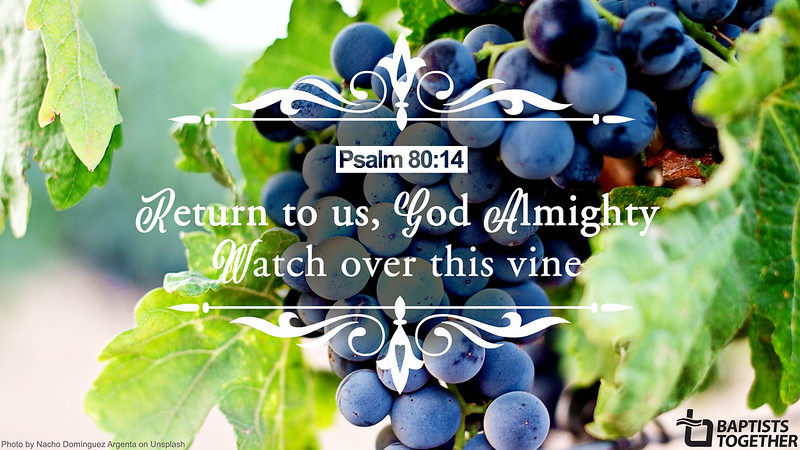
“Angel appearing to St Joseph” is a photograph taken by Lawrence OP of windows by Clayton and Bell in the south wall at Freeland which commemorate the life of the Virgin.
START WITH SCRIPTURE:
Matthew 1:18-25
CLICK HERE TO READ SCRIPTURE ON BIBLEGATEWAY.COM
OBSERVE:
The birth of Jesus begins with what seems to be a scandal. His mother is pregnant before she has been married to her fiance, Joseph. And Joseph knows that he has not been with her.
As the readers of the Gospel, we know what Joseph does not know:
she was found pregnant by the Holy Spirit.
This is a serious claim, that Mary has not been with another man, but has been impregnated directly by the Holy Spirit. Joseph reacts as nearly every man would react — he knows where babies come from, and he doesn’t believe this story for a second. But he is also a decent and compassionate man:
Joseph, her husband, being a righteous man, and not willing to make her a public example, intended to put her away secretly.
Here was his dilemma — according to the law of Moses, a young newlywed bride could be stoned to death if her husband found evidence that she was not a virgin (Deuteronomy 22:20-21). Pregnancy would certainly apply!
Therefore Joseph wishes to hush up Mary’s “mistake” and put her away secretly. This suggests that he would quietly end the engagement and send her away where she might be safe from condemnation.
Enter divine intervention:
But when he thought about these things, behold, an angel of the Lord appeared to him in a dream, saying, “Joseph, son of David, don’t be afraid to take to yourself Mary, your wife, for that which is conceived in her is of the Holy Spirit. She shall give birth to a son. You shall call his name Jesus, for it is he who shall save his people from their sins.”
Like his patriarchal namesake, Joseph the dreamer and the interpreter of dreams (cf Genesis, chapters 37, 40, 41), Joseph the son of David receives a message through a dream. Joseph’s genealogy, recorded in Matthew 1:1-17, confirms that this obscure man is actually an heir of the greatest king in Israel’s history.
But that isn’t what sets Joseph apart. What sets him apart is that he believes that this dream is from God. He accepts the impossible premise that Mary is telling the truth:
that which is conceived in her is of the Holy Spirit.
And the Scriptures also corroborate Joseph’s experience:
Now all this has happened, that it might be fulfilled which was spoken by the Lord through the prophet, saying,
“Behold, the virgin shall be with child,
and shall give birth to a son.
They shall call his name Immanuel”
Matthew the evangelist is quoting Isaiah 7:14 (CLICK HERE to see the Old Testament lectionary reading for this Sunday, from Isaiah 7:10-16 for more background).
Not only does Isaiah’s prophecy confirm the virgin birth of the Messiah, it also reveals the nature of Jesus as the divine Son of God. Immanuel means:
“God with us.”
Joseph is convinced by his dream, and takes Mary as his wife, fulfilling the instructions of the angel:
Joseph arose from his sleep, and did as the angel of the Lord commanded him, and took his wife to himself; and didn’t know her sexually until she had given birth to her firstborn son. He named him Jesus.
APPLY:
It is very clear that Matthew and Luke both firmly believe in the virgin birth of Jesus. This is made clear by the angelic visitation recorded in both Gospels. In Matthew’s Gospel, the angelic visitation comes in Joseph’s dream. In Luke’s Gospel, the Angel Gabriel appears directly to Mary. Gabriel confirms that despite her virginity Mary will conceive and give birth to the Son of the Most High who will also be a descendant of David through her bloodline (Luke 1:26-37). The Angel Gabriel is also named twice in his appearances in the Old Testament book of Daniel (Daniel 8:16; 9:21); and Gabriel also appeared to the priest Zechariah and announced he would be the father of John (Luke 1:19).
When Matthew quotes Isaiah 7:14, he is corroborating the experience of Mary and the angelic witness to Joseph. Scripture and experience reinforce one another.
Why does it matter whether or not Mary was a virgin, as the Scriptures claim? Somewhere in my theological reading over the years I came across the relationship between the res and the signo of this miracle.
There is the res — the thing itself. That is the fact that Mary had not had relations with a man.
But then, even more importantly, is the signo — the sign. The sign is what the res (the thing) points to — and what the Virgin Birth points to is that Jesus is the divine Son of God and the human son of Mary. He is both God and man. This is of vital importance, because if Jesus is only human, he would not have the power to save us from our sins. And if Jesus is only divine, he would not be able to identify with our suffering and weakness and temptation. But in fact Jesus has become like us:
For we don’t have a high priest who can’t be touched with the feeling of our infirmities, but one who has been in all points tempted like we are, yet without sin (Hebrews 4:15).
What difference does it make?
Joseph takes the leap of faith — and believes. And he becomes a key participant in salvation history. We take the leap of faith — that Jesus is Immanuel — and we are incorporated into these mighty acts of salvation!
RESPOND:
There is an old saying — you can’t just be a little bit pregnant. A woman is either pregnant or she’s not. The same may be said of Mary’s virginal conception — either she was a virgin, or she was not.
The claim of Matthew and Luke’s Gospels, and of the historic Christian church, is that Mary was a virgin. And this is vital, not because the creeds claim it, or the church has affirmed it historically, but because it is true. And because it is true, the Jesus who walked the dusty roads of Galilee, and whose hands and feet were pierced by Roman nails, and who bled Jewish blood, is also God with us.
Lord, the claims of the Gospel don’t depend on whether I believe them or not, or whether I understand them. But because these claims are true, they confirm for me that I have a Savior who is more than a man, but who has been a human being like me. You have humbled yourself to come to me, so that you could lift me up to yourself. I can only give thanks! Amen.
PHOTOS: "Angel appearing to St Joseph" by Lawrence OP is licensed under a Creative Commons Attribution-NonCommercial 2.0 Generic license.


![A Mighty Fortress Is Our God! [photo by Holly Hayes]](https://soarlectionarybiblestudy.wordpress.com/wp-content/uploads/2016/01/2330234288_59cc82ec93_z.jpg)